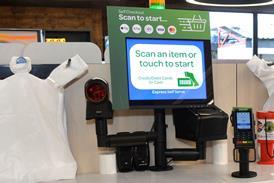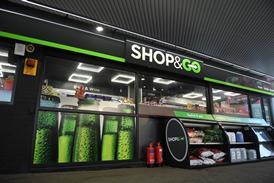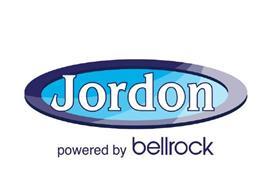
It was interesting to read here in Forecourt Trader just a few days ago that a number of independent forecourt retail chains had announced their intention to raise pay rates on their forecourts to £12.00 an hour from April, meaning that they would immediately be paying more than the National Living Wage (£11.44/hr) that comes into force at that time.
In doing so they were recognising that other parts of the retail world were already setting the bar quite high: Aldi is already paying £12/hr outside the M25-ring and £13.15/hr inside; Marks & Spencer announced a similar increase just days later, and both Sainsbury’s and Lidl will also be paying £12.00/hr outside London.
In some respects, the simple fact of paying more than the legal minimum shouldn’t be much of a surprise. I took a quick look back to the last time we published the then-annual “EKW Forecourt Pay Report” in 2015: the figures were all based on actual pay rates that we’d processed for forecourt retail clients in September of that year, at which time the “National Minimum Wage”, as it used to be called, for employees aged 21 and over was £6.50/hr. The UK national average actual forecourt wage was calculated as £6.67/hr, with highest regional average rates at that time already substantially in excess of the legal minimum - at £7.65 /hr, and yes, those were within Greater London. So even eight-and-a-half years ago, some forecourt retailers were setting pay rates well above any legal minimum, and the reason was exactly the same as it is today – competition.
And if you think that 2015 is ancient history, I can go back further; whether you want the early 2000s or even the 1990s, pay rates were always affected by competition, and many forecourt operators used to say that they lived in fear of their best staff being tempted away to “stack shelves overnight at the local Tesco”. Essentially, pay rates in the petrol retailing sector have been driven at least as much by pay rates offered by supermarkets as they have by legal wage rates for a very long time. And those retailers talking about losing staff to supermarkets were also conscious of something else, beyond the actual hourly pay. When they had lost staff to go stacking shelves their ex-employees often also mentioned another reason for leaving: re-stocking shelves overnight in a supermarket was seen as far less hassle than having to deal directly with the customers that they often experienced on a forecourt, especially overnight.
Employers have always known that recruiting and retaining reliable employees is difficult, and that they face competition to do so. Minimum pay legislation was and is relevant only indirectly. Of course, every penny added to the wage bill will either come off their bottom line profit, or will have to be recovered in some other way.
There has been much talk therefore of improving productivity – using technology to cut whatever manual tasks that can be automated. But in terms specifically related to retail, the reality is often not what is promised. Take self-scanning for example: how many times have you been in a supermarket and seen a very stressed member of staff trying to help one customer after another, or usually, several simultaneously put a couple of items through the self-service checkouts? According to one report published a few years ago, customers were experiencing so much aggravation at these tills that they were abandoning their shopping to the extent that supermarkets were claimed to be losing nearly half a billion pounds each year in potential sales across the UK. And it’s not only here – there are reports that the likes of Costco and Walmart in the US are also replacing some of their self-checkouts with staffed positions, for the same reasons. And quite apart from customer resistance, there’s the issue of theft. While it’s difficult to find precise figures, some estimates from the US suggest that as much as 39% of all retail theft happens through self-checkout lanes.
The reality is that fuel retail outlets offer rather few opportunities for automation: the logical end point would be to have self-payment pumps with vending machines for non-fuel sales. At various times and in various places this has been tried before; perhaps the fact that we still don’t really see that model in widespread use across this country, despite the continual improvement in technology, suggests that the idea isn’t quite as useful as equipment manufacturers suggest.
As any employer will be quick to remind us, hourly wage rates are only one of the factors that they have to contend with when employing anyone. Think of employer’s National Insurance and pension contributions, statutory sick and maternity pay, and paternity leave entitlements, etc. These all have to be administered and paid by the employer. And although we’ve mentioned retaining good employees, the other side of the coin for many employers at some time is their difficulty in removing employees who turn out to be unreliable or completely inefficient – without having to spend a great deal of money on human resources advice. Get it wrong and you’ll be paying our learned friends rather more than that aforementioned per hour to defend an unfair dismissal or discrimination case,
The long and the short of it is that forecourt retailing as we know it depends on having some human presence on-site at all times. Technology has its uses, but humans can still offer advantages. Employing people has always come at a cost, but in looking back at that 2015 report that I mentioned earlier I was actually quite surprised to find that here we are discussing rates of £12.00/hr in 2024. That same report showed historic rates going back a few years before, and we had first reported on the national average rate only just creeping over £6.00/hr way-back in 2010. Think of everything that’s happened in the world and UK economy since then, and we’re only just looking at a doubling of forecourt pay rates in 14 years. Headline pay rates may make good headlines, but they only tell part of the story when it comes to the full costs and benefits of employing staff. Who’d want to be an employer today?
ekwgroup.co.uk
01942 816512
















